Who hasn’t played a game before? Whether it was with friends, by yourself, in your imagination, on the playground, or online. For as long as I can remember, I have played games. They are a fun way to escape reality (and life, duties, global world problems, adulthood…).
I am on the brink of adulthood. My parents expect me to find a job as soon as I graduate, while I love to keep learning. Some friends of mine are in relationships, and one friend has recently even bought a house with her boyfriend. Yet, here I am. Not ready yet to fully go into adult mode. I am too sentimental to leave my childhood behind– the innocence, the playfulness, the imagination.
While there are many beautiful things this world has to offer, it can also be very dull. We find ourselves in a boring cycle. Every day starts to feel the same. Maybe that is the reason why many people prefer playing games to working, even if they are doing the same kind of work. I am talking specifically about simulation games because these games are designed to replicate real-world activities and systems that allow players to engage and manipulate these environments.
If you have read my last blog or if you read my username, you know that I am a huge booklover. So, when the video game Tiny Bookshop was released this year, I was totally ecstatic! The developers describe it as “a cosy narrative management game wherein the player stops at various scenic locations and meets its locals.” With your tiny bookshop, filled with all kinds of books and items, your task is to recommend the right book to the right person or broaden their literary horizon. So you are basically playing the role of a librarian.
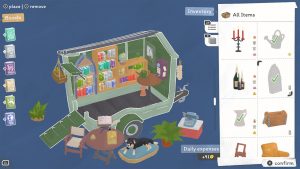
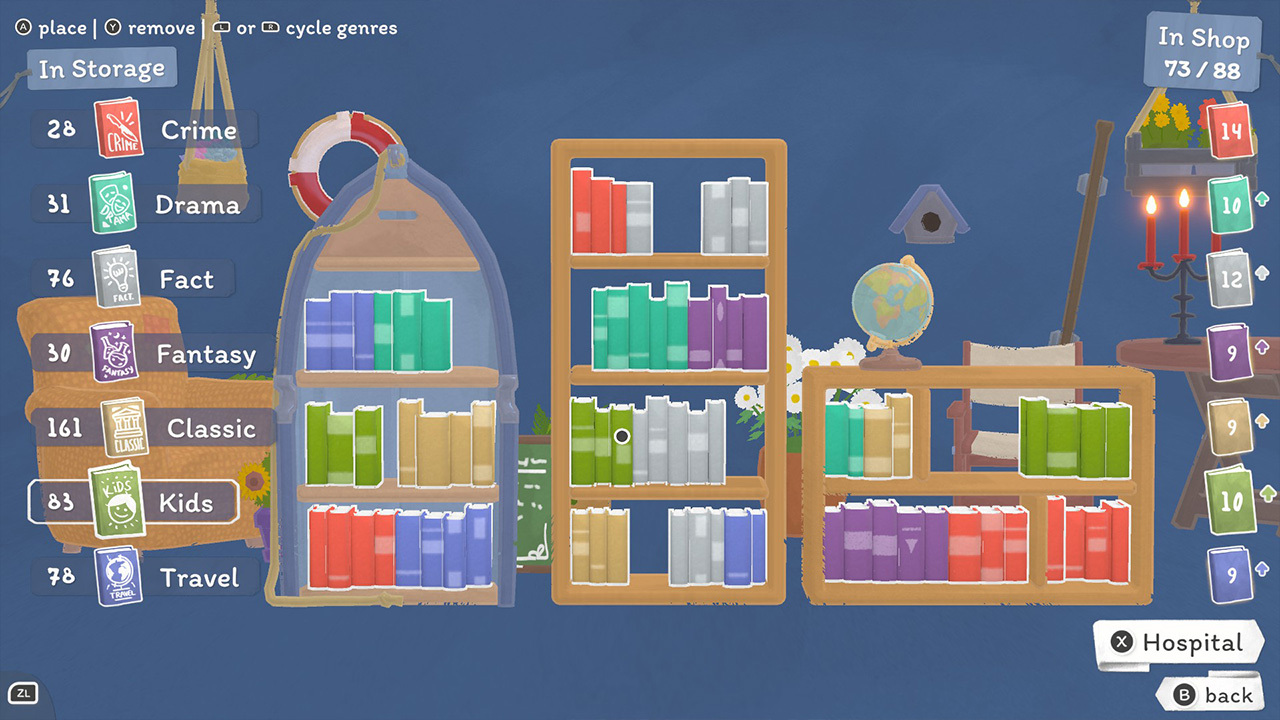
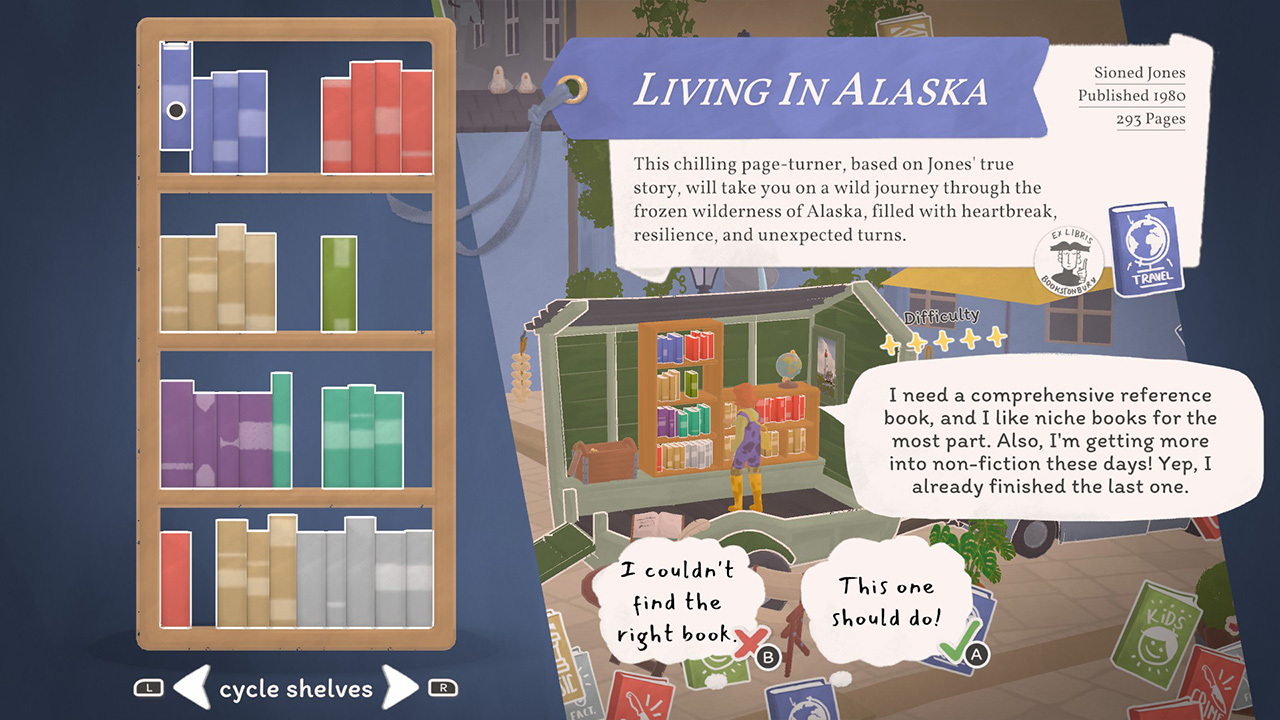
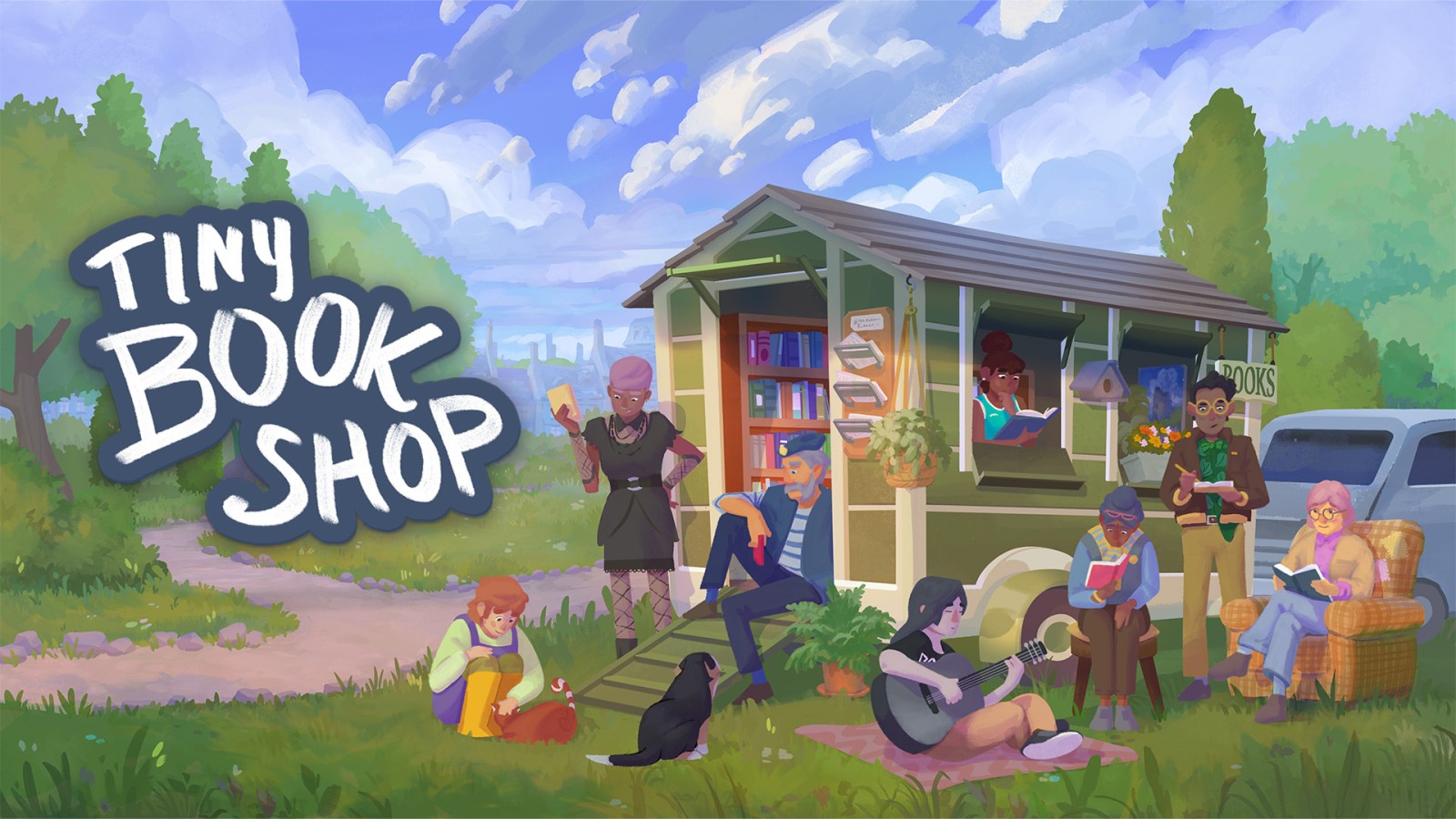
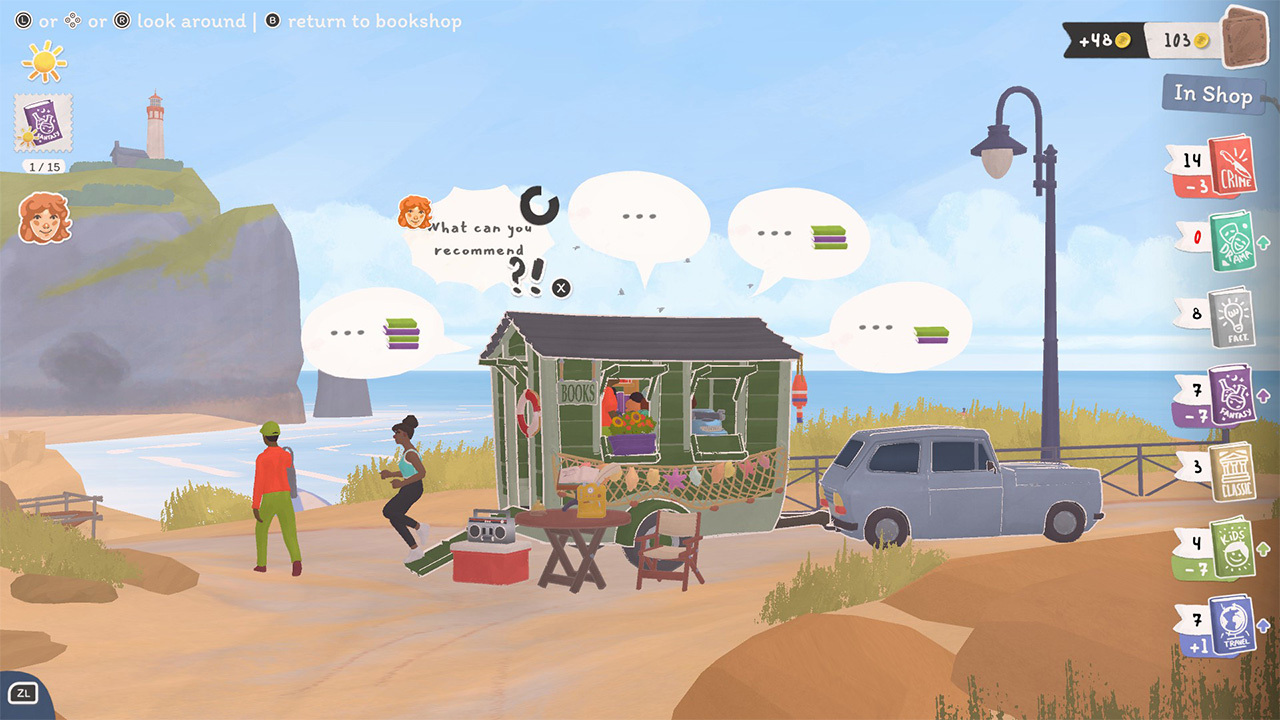
SimCity
But before these kinds of cosy simulation games, there were city-building simulations, with SimCity as one of the most popular ones. It was released in 1989 by American game designer Will Wright and electronic game developer Maxis1, and its basic premise was to build, develop, and manage your own city. There is no win or lose outcome, but the decisions you make have an influence on the city’s needs, to which you, in turn, have to respond. As Wright himself noted:
Instead of telling the player how to win or lose, we left it up to the player to decide what the desirable outcome was. 2
Contrary to real-life city-building, the game allows for a distance from everyday politics and other forms of global issues. In SimCity, there is no real harm when a home gets burned down since it is essentially all just codes and abstractions.

So, how did we go from management simulation games, such as SimCity, to the cosy, heartfelt ones like Tiny Bookshop?
From SimCity to Tiny Bookshop
The shift from SimCity to Tiny Bookshop can be seen as a reflection of society’s changing ambitions. It seems that we are less interested in managing systems and more interested in human-scale interactions. In other words, whereas we used to praise ‘efficiency’, we are now putting more value on ‘meaning’. With millions of people deliberately choosing to do virtual work that mimics real life in their free time, it can be considered a form of critique.
While the common perception of adults playing games is seen as ‘childish’, I want to argue that disregarding these games as sheer entertainment misses an important point. These simulation games (and other game genres) reveal a gap between what work nowadays is and the potential of what it can be.
According to political scholar Kathi Weeks, they serve as…
laboratories for post-work imagination. 3
Players are not refraining from work that is not satisfactory. They are practising better work. They are experiencing what work might be like if it fulfilled human needs instead of building up capital.
The Dutch historian, Johan Huizinga, who pioneered game studies, coined the term “magic circle“. 4 It proposes that whenever we enter a game, we enter a unique environment with its own rules, and because we freely choose to participate in this “magic circle”, everyday activities take on a greater meaning.
For example, cleaning your chaotic room feels like a heavy task when you even think about it, but in a game such as Unpacking, it becomes fun and satisfying. The key difference here is agency and consent; with games, we voluntarily choose to enter these unique environments where chores are turned into a form of play.

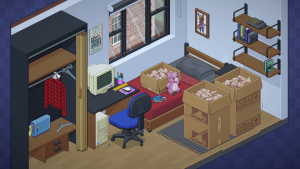
So the next time someone asks why you are ‘wasting time’ travelling around in a virtual bookshop instead of doing the job, remind them that you are not avoiding work. You are getting a sense of what a job might be like. Optional, meaningful, and genuinely productive. The fact that we have to find this in games rather than in our real work is not a gaming issue. It’s a work issue.
A Nostalgic Return: Neocities
Besides our growing interest in human-scale interactions in a world where technology is gaining dominance, there is also a growing desire for nostalgia. This is seen in the rising trend of Neocities.
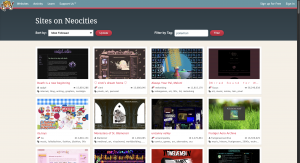
More and more people are creating their own Neocities as a desire to recapture the playfulness of websites when they were first introduced. These sites are like a response to the capitalisation of the internet. They are more social, and you do not have to be a coding expert to make one yourself. You can create anything from a blog to a portfolio or a fan page.
────── ⋆⋅☆⋅⋆ ──────
Footnotes
- GameSpot, “SimCity (1989),” GameSpot, October 29, 2019, https://www.gamespot.com/games/simcity-1989/. ↩︎
- The Strong National Museum of Play, “SimCity,” The Strong National Museum of Play, April 3, 2025, https://www.museumofplay.org/games/simcity/. ↩︎
- The Problem with Work: Feminism, Marxism, Antiwork Politics, and Postwork Imaginaries, “Duke University Press – the Problem with Work,” Dukeupress.edu, 2011, https://www.dukeupress.edu/the-problem-with-work. ↩︎
- bookwarmgames, “In the Shadow of Huizinga: Games Studies and Cultural History,” Video Game Academy, August 4, 2021, https://videogameacademia.org/2021/08/04/in-the-shadow-of-huizinga-games-studies-and-cultural-history/. ↩︎
Bibliography
- bookwarmgames. “In the Shadow of Huizinga: Games Studies and Cultural History.” Video Game Academy, August 4, 2021. https://videogameacademia.org/2021/08/04/in-the-shadow-of-huizinga-games-studies-and-cultural-history/.
- Collins, A, and R Halverson. “Technology Supports for Lifelong Learning.” Elsevier EBooks, January 1, 2010, 184–88. https://doi.org/10.1016/b978-0-08-044894-7.00737-5.
- GameSpot. “SimCity (1989).” GameSpot, October 29, 2019. https://www.gamespot.com/games/simcity-1989/.
- Huizinga, Johan, and Duke University Libraries. Homo Ludens: A Study of the Play Element in Culture. Internet Archive. New York: Roy Publishers, 1950. https://archive.org/details/homoludensstudyo1950huiz.
- Nadeem, Reem. “Job Satisfaction.” Pew Research Center, December 10, 2024. https://www.pewresearch.org/social-trends/2024/12/10/job-satisfaction/.
- Nintendo. “Tiny Bookshop for Nintendo Switch – Nintendo Official Site.” Nintendo.com, 2025. https://www.nintendo.com/us/store/products/tiny-bookshop-switch/?srsltid=AfmBOoqHSdF32JOzcwiWHrMYBPk6lXHNnSGLbGHO1oe2jMfVj2WydbOX.
- The Problem with Work: Feminism, Marxism, Antiwork Politics, and Postwork Imaginaries. “Duke University Press – the Problem with Work.” Dukeupress.edu, 2011. https://www.dukeupress.edu/the-problem-with-work.
- The Strong National Museum of Play. “SimCity.” The Strong National Museum of Play, April 3, 2025. https://www.museumofplay.org/games/simcity/.


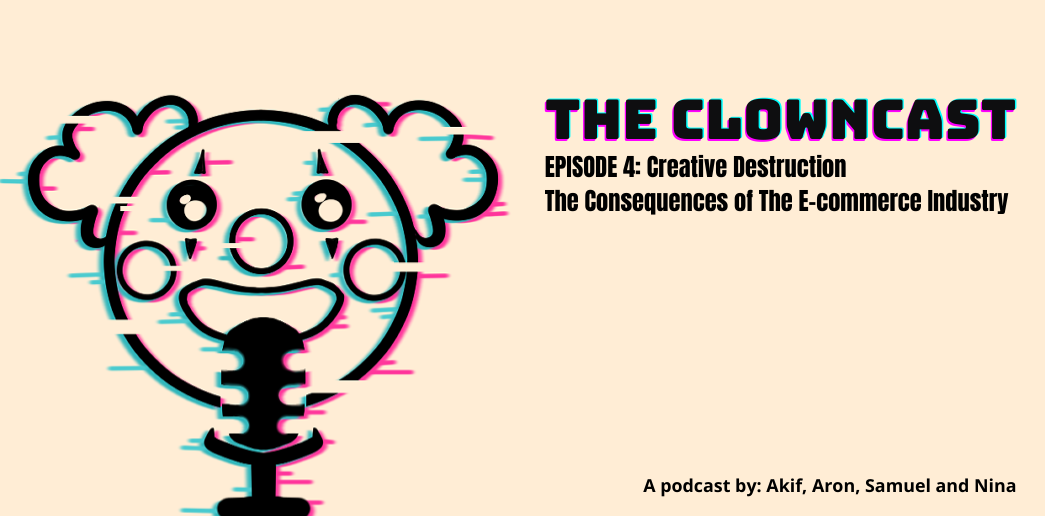
This post really offers me to take a new perspective on gaming, one I have never really experienced myself or considered before, so thanks a lot for that! I believed video games were truly mainly about escapism, or maybe about the possibility of fulfilment, that people wouldn’t get in their ”actual” lives. That games actually simulate life and therefore can work as training and inspiration however makes a lot of sense.
I am curious tho if we will see an overall shift from “efficiency” to “meaning” in our actual daily lives as well, as you describe the development of lots of games.
Thanks a lot for the interesting read!